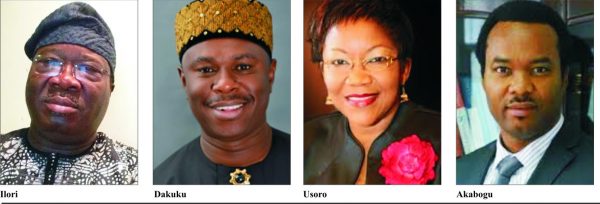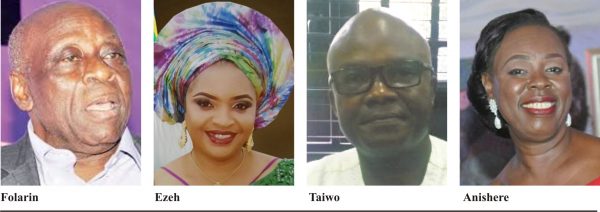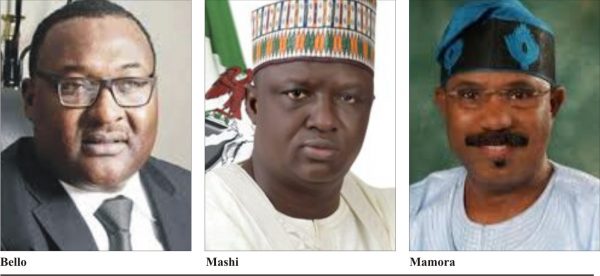NIMASA 2018 Forecast: The Good, The Bad, The Ugly
By Kenneth Jukpor
While Nigerian Maritime Administration and Safety Agency (NIMASA) should be commended for taking the lead as maritime sector regulator and the sector’s development promoter to provide a guide to investment in the sector for 2018 and 2019, some notable omissions have become a bane to the noble exercise ‘NIMASA 2018 Industry Forecast’.
The forecast which emanated from a fact-based analysis of global trends and domestic government policies was mostly based on oil trade even as the report couldn’t explain how the maritime sector contributes to the nation’s Gross Domestic Product (GDP) in percentages.
Although the NIMASA Director General lauded the forecast as timely following the 2017 last quarter report by the National Bureau of Statistics (NBS) which reported that the nation’s GDP grew in Q4 2017 by 1.92% (year-on-year) in real terms, maintaining its positive growth since the emergence of the economy from recession in Q2 2017, the report like NIMASA’s forecast had no documentation on the contribution of maritime services to the nation’s economy.
NBS report revealed that the non-oil sector grew by 1.45% in real terms during the reference quarter, however, this growth was revealed to have been driven mainly by Agriculture (Crop), Trade and Transportation and storage, with no report for maritime services in particular.
“In real terms, the Non-Oil sector contributed 92.83% to the nation’s GDP, lower from share recorded in the fourth quarter of 2016 (93.25%) but higher than in the third quarter of 2017 (89.96%). Annual contribution was 91.32% and 91.65% in 2016” NBS report stated.
Maritime stakeholders had expected NIMASA’s report to address the shortcomings but it didn’t and the Secretary General of the Abuja Memorandum of Understanding (MoU) and former Director General of NIMASA, Barr. (Mrs.) Mfon Usoro was quick to figure out some of these lapses as she advised the company which developed the forecast to provide an elaborate report of the non-oil sector in the upcoming forecasts.
Usoro, who made this remark while giving her goodwill message at the event, commended the forecast as a great interaction with the industry players which should help move the sector forward.
“The point that we seemed to have left out in this beautiful forecast is the place of the non-oil sector; although it is quite understandable that the major part of economy is oil, there are still large volumes of shipping that are non-oil cargoes such as government equipments, agriculture, equipments, etc. It is not good to have these forecasts that don’t capture other areas. There was a column for non-oil but what exactly are we talking about in that area? Are we talking about bitumen or other mineral resources, agriculture, etc?” Usoro said.
She noted that the statistics from the Nigerian Ports Authority (NPA) reveal that trillions of cargoes come into the nation annually, admonishing the presenters to make efforts to capture other cargoes in the subsequent forecasts via NPA statistics.
Usoro also observed that the increased presence of NIMASA activities in the maritime sector of the West and Central Africa sub-region is an indication that the present leadership of the Agency is on course.
Meanwhile, the NIMASA Board Chairman, Maj-Gen. Jonathan Garba (Rtd.) told MMS Plus that the forecast was a document that could provide stakeholders and potential investors valuable information about the inherent potentials in nation’s shipping sector.
“There are business opportunities in the sector that require indigenous as well as foreign investors and this document could be a guide to enlighten them on the best steps to take in their decision making, although we expect subsequent forecasts to be better”, Garba said.
He added that the launch wouldn’t go far without the effort of the media who he said were saddled with the responsibility to communicate more details than the forecast could possibly provide.
The event also featured a documentary on the developments at NIMASA since Dakuku’s appointment as Director General.
Speaking to MMS Plus on the sidelines at the event, the convener of OTL Africa Downstream, Mr. Emeka Akabogu appraised NIMASA’s development in the last two years, saying it was important for NIMASA to focus on the indices that improve the industry.
“We haven’t seen enough efforts in those true indices of industry development and one of those indices is tonnage development. I want to review and judge NIMASA based on the critical indices which are on ground and not broad grandiose statements” he said.
Akabogu lamented that it is the volume of Nigerian tonnage which existed in 2016 that is available in 2018.
“To what extent have Nigerian ship-owners become more active in Cabotage trade? To what extent can it be said that seafarers who are even currently onboard Nigerian vessels and support vessels are being treated in line with the provisions of NLC? Has Nigeria developed increased capacity in ship building? Does the nation have more shipyards or are the existing shipyards operating better today than they were in the previous years? I like to look at the practical indices and these practical indices would speak for themselves” Akabogu said.
On his part, the Publicity Secretary of Nigerian Indigenous Ship-owners Association (NISA), Engr. Emmanuel Ilori commended the forecast as a great initiative because it provided a template to marry the available economic data with maritime development.
“We are identifying the key issues that underpin development. We are beginning to articulate that link between maritime development in the nation’s economy and the economic dimensions across the world”, Ilori said.
Ilori, who was inaugurated as Chairman, Maritime Committee on Nigerian Ship Register by the NIMASA Director General at the event, stressed that ships are the core of maritime administration and quality ships are very important to shipping business and the integrity of the nation.
He said that the committee was saddled with the responsibility of ensuring that a review is done in ship registration process to ensure that it becomes more attractive to businesses, projects Nigeria’s image positively and ensure that it contributes positively to the nation’s economy.
Quizzed on the high cost of registering a ship in the nation by MMS Plus correspondence, Ilori said; “these are part of the issues we would discuss in the committee and develop ideal practice that encourage business and good for the industry and the nation. Nigerian ships must get to a level where they are regarded as one of the best in the world”
However, some stakeholders have posited that the major aim of the event wasn’t the forecast but an attempt to clean-up Dakuku’s image via a documentary on the achievements of NIMASA under Dakuku’s leadership with 2019 elections around the corner.
While the major success captured in the documentary was the fact that NIMASA has finally been able to provide seatime experience for 150 cadets out of 2,500 trained by the agency, it is barely 6% of the total number of cadets the agency has sponsored.
These cadets are yet to be gainfully employed to enable them add to the GDP of the nation. Their future doesn’t look as bright as it should, because Nigerian ship-owners lack the capacity to absorb them into the industry and the Cabotage Vessel Financing Fund (CVFF) which should have solved the problem remains inaccessible.
As a stakeholder who spoke with MMS Plus at the event, puts it; “You can’t help but love Dakuku as a person but there is nothing to love about his political gimmicks and the way he deploys politics on issues as Director General of NIMASA”
There are three dimensions to view the recent NIMASA outing; the good – with the forecast, NIMASA showed that it had begun to think out of the box with genuine attempts to solve problems in the maritime sector, the bad – the forecast wasn’t in-depth and thorough as it couldn’t provide clarity on the contribution of the maritime sector to Nigeria’s GDP and the ugly – the NIMASA Director General tried to make a statement, albeit with his gubernatorial aspirations in mind as 2019 elections draw near but the reality is that the major indices in the sector haven’t changed. Nothing has really changed and that documentary was a futile pretentious venture.
Copyright MMS Plus.
All rights reserved. This material, and other digital content on this website, may not be reproduced, published, broadcast, rewritten or redistributed in whole or in part without prior express written permission from KINGS COMMUNICATIONS LIMITED.









